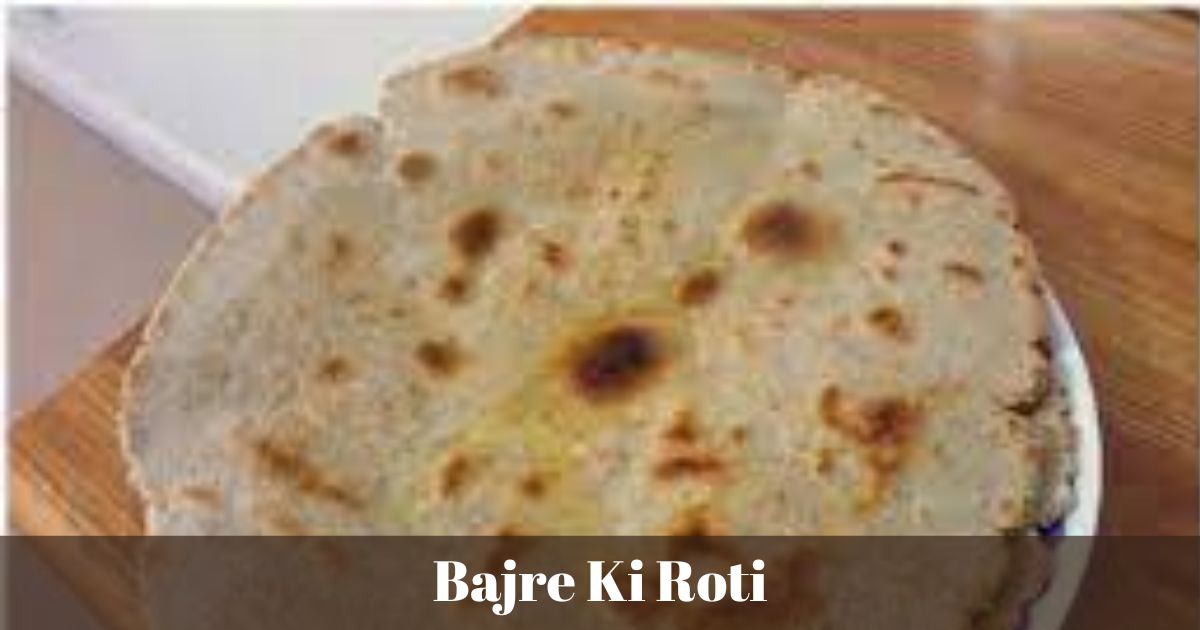Introduction:
Bajre Ki Roti is a traditional Indian flatbread made from
pearl millet flour (bajra). This rustic and flavorful bread has been a staple
in many Indian households, especially in the states of Rajasthan, Gujarat, and
Haryana, where bajra is a commonly grown cereal crop. Bajre Ki Roti is not only
delicious but also comes with numerous health benefits, making it a popular
choice for those looking for a nutritious alternative to wheat-based rotis. In
this blog post, we will explore the art of making Bajre Ki Roti, its
nutritional value, and its many health benefits to help you understand why it
deserves a place on your dining table.
Bajre Ki Roti: A Nutritious Delicacy
1.
Bajre Ki
Roti - An Introduction: Bajre Ki Roti is a quintessential part of the
traditional cuisine of northwestern India. The roti is made by kneading bajra
flour with water to form a dough, which is then flattened and cooked on a hot
griddle (tawa) until it is golden brown and crispy. This unleavened bread has a
distinct earthy flavor and is often paired with a variety of side dishes such
as ghee, butter, curd, vegetables, or pickles.
2.
The Bajre
Ki Roti Recipe: Ingredients:
·
2 cups
bajra flour (pearl millet flour)
·
Warm water
for kneading
·
A pinch of
salt (optional)
·
Ghee or
butter for serving
Instructions:
5.
In a mixing
bowl, add the bajra flour and a pinch of salt (if desired).
6.
Gradually
add warm water and knead the flour to form a smooth and soft dough.
7.
Cover the
dough and let it rest for 15-20 minutes.
8.
Divide the
dough into small equal-sized balls.
9.
Take a ball
of dough and flatten it with your hands to form a small disc.
10.
Dust the
rolling surface with bajra flour to prevent sticking.
11.
Roll out
the disc into a circular shape, ensuring it is not too thin or too thick.
12.
Heat a tawa
or griddle on medium-high heat.
13.
Carefully
transfer the rolled roti onto the hot tawa and cook until it starts to puff up
and brown spots appear on both sides.
14.
Repeat the
process for the remaining dough balls.
15.
Serve hot
with ghee or butter.
Bajre Ki Roti Nutritional Value:
Bajre Ki Roti is a powerhouse of nutrition and offers a
range of health benefits:
- Rich in Fiber: Bajra is a good source of dietary
fiber, aiding in better digestion and promoting a healthy gut.
- Gluten-Free: Bajra is naturally gluten-free, making
it an excellent alternative for those with gluten sensitivity or celiac
disease.
- High in Minerals: Bajra is rich in essential
minerals like magnesium, potassium, iron, and zinc, which are vital for
various bodily functions.
- Low Glycemic Index: Bajra has a low glycemic index,
making it suitable for diabetics as it helps in regulating blood sugar levels.
- High in Protein: Bajra contains a decent amount of
protein, which is essential for muscle building and repair.
Bajre Ki Roti FAQ's:
Q: Can I mix bajra flour with other flours like wheat or rice?
A: Yes, you can mix bajra flour with wheat flour or rice flour to alter
the texture and taste of the roti.
Q: Can I make Bajre Ki Roti without a tawa?
A: Yes, if
you don't have a tawa or griddle, you can cook the roti directly over a low
flame until it is fully cooked.
Q: Is Bajre Ki Roti suitable for weight loss?
A: Yes,
Bajre Ki Roti is a good choice for weight loss as it is low in calories and
high in fiber, keeping you full for longer.
Q: Can Bajre Ki Roti be made in advance and stored?
A:
Bajre Ki Roti is best consumed fresh, but you can make extra rotis and store
them in an airtight container for up to 2 days. Reheat them before serving.
Conclusion:
Bajre Ki Roti is not just a traditional Indian bread; it is a wholesome and nutritious delight that offers a plethora of health benefits. This versatile flatbread can complement a variety of dishes and is an excellent choice for those looking to incorporate more nutritional diversity into their diet. By following the simple recipe and nutritional insights provided in this blog post, you can now savor the goodness of Bajre Ki Roti while nourishing your body with its bountiful nutrients. So, head to your kitchen, get your hands on some bajra flour, and embark on a culinary journey to experience the authentic taste and healthfulness of Bajre Ki Roti. Happy cooking and bon appétit!
